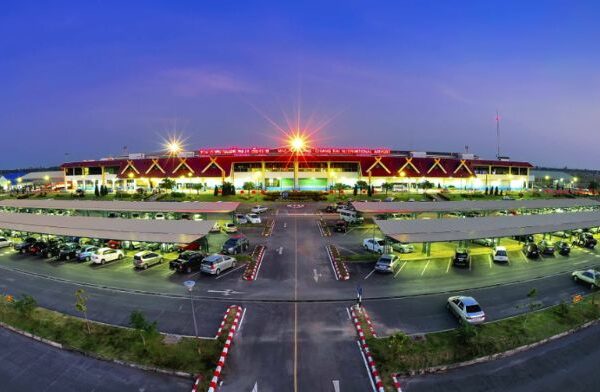Aviation industry trade bodies have responded to the UK Government’s proposals on introducing alcohol licensing laws at airports in England and Wales.
The UK Government has called for evidence on whether introducing alcohol licensing laws in airports would help tackle the problem of drunk and disruptive passengers.
Currently the sale of alcohol by pubs, bars, restaurants, lounges and shops beyond the security gates at international airports in England and Wales are not regulated by licensing laws.
Excessive drinking during air travel is not without consequences, however, as it is an offence to be drunk on an aircraft, with heavy fines or even prison sentences meted out to miscreants.
The review follows a recommendation from the House of Lords Select Committee that with increased reports of drunk and disorderly airline passengers, airside outlets that sell and supply alcohol to air travellers should comply with the same licensing rules applicable elsewhere.
In response to the announcement, the Airport Operators Association’s chief executive, Karen Dee, commented that steps can be taken before additional regulation: “Airports are committed to reducing further the already small numbers of disruptive incidents that result from passengers’ excessive alcohol consumption,” she said.
Dee argued that airports work closely with airlines, retailers, bars, restaurants and the police to address excessive alcohol consumption at all stages of the journey, adding: “For example, we successfully launched the One Too Many campaign this summer, supported by the Government.
“This reached nearly two million people through social media and many more through advertising in airports, reminding them of the serious consequences of disruptive behaviour – from being denied boarding, fines or even prison sentences.
“We know our industry-wide work is having an impact. More should be done to develop these initiatives further, including fully enforcing existing powers that airlines and the police have at their disposal, before considering additional regulation,” she concluded.
However, industry associations representing airlines and pilots in the UK and Europe argued airside licensing was needed at airports to curb the rising number of disruptive passenger incidents.
Airlines UK, Airport Services Association (ASA), British Airline Pilots’ Association (BALPA), Unite the Union, European Regional Airlines Association and ABTA – the travel association – provided a statement calling for an amendment to the Licensing Act.
Tim Alderslade, chief executive of the trade association, Airlines UK, argued that disruptive behaviour has become “progressively worse over a number of years” despite the industry’s best efforts. He commented: “Alcohol plays a major role in disruptive passenger incidents and so it is essential that its sale in airports is done responsibly.”
Alderslade argued that removing the exemption “will simply ensure that the same standards of responsible alcohol sale that any bar, pub or shop on the high street must follow are also applied to outlets airside.”
The Government says the feedback from the three-month call for evidence will help to establish the scale of the problem and assess the advantages and disadvantages of applying the Licensing Act 2003 to airside premises.
Minister for Crime, Safeguarding and Vulnerability, Victoria Atkins said: “Most UK air passengers behave responsibly when flying, but any disruptive or drunk behaviour is entirely unacceptable.
She added: “This government is committed to ensuring that the travelling environment for airline passengers remains safe and enjoyable.”





